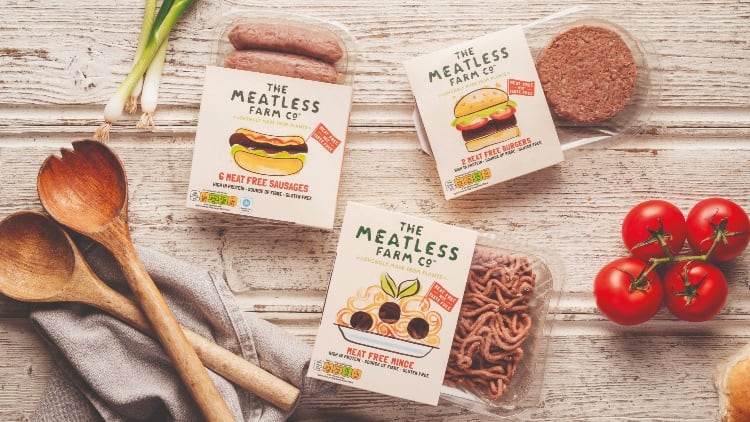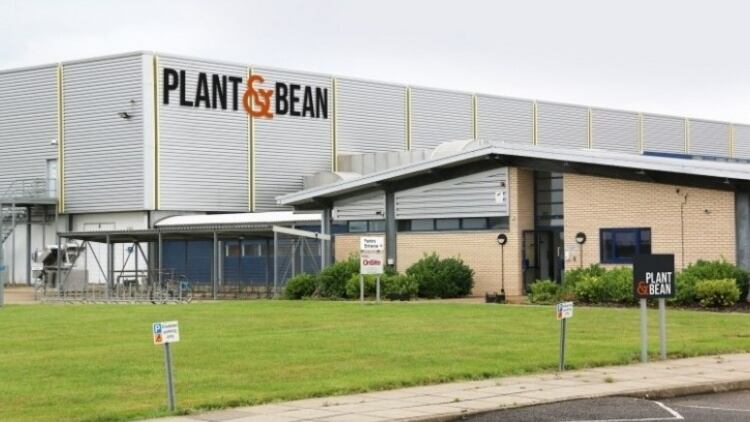It’s a challenging time for industry that has comprised a multi-year period of shocks that have struck one after the other.
This has set about a catalyst for change, in which businesses have had to rethink their strategies in light of ever-changing circumstances, and it’s also resulted in a period of consolidation.
Government figures showed that across all industries, there were a rise of insolvencies in the four quarters ending Q3 2022, compared to the period ending Q3 2021. More recent insights from Kroll has revealed a gloomy picture for food and drink businesses in the UK, with the number entering administration more than doubling in the first half of 2023 compared to same period last year.
From the hangover of Covid, to dramatic rises in raw material costs, energy bills and wages, it’s been a tricky few years.
As Lily Patrick, operations director for income strategy business Stratagem, told Food Manufacture: “It's just a big domino effect of the current crisis we're in.”
“As you always see in any downturn, smaller businesses or those with the thinnest margins are going to unfortunately face financial stress and difficulty first,” added Michael Rice, partner at specialist investor for the food sector, ISARA. “Produce margins, in particular fresh, have been run razor thin for years. If you were in that situation three years ago, during an inflationary environment now, you’re ‘loss making’.
“You’ve had interruptions – shutdowns because of Brexit and Covid; all that drains any capacity balance sheet, and you aren’t big enough to be strategic to your customers. They have probably got other options they can go to. There’s a degree of who can hold on long enough.”
And although smaller businesses may be the first to encounter problems, they’re not alone in this struggle, with Kroll’s managing director, Ben Wiles, predicting that we’ll likely see some better-known names suffering in the coming months.
This dismal trend is also a result of oversupply, Rice noted, nodding to the recent run of administration and rescues seen in the plant-based segment specifically. “There’s a sort of natural selection process going on. Oversupply is being corrected.”
In the short term this will result in a huge amount of pain and disruption, with many losing their jobs, but in the medium-term it could help those who ‘survive’ to rebalance pricing dynamics.
Is this a plant-based problem?
With some well-known plant-based brands entering administration in the last few months, it has left many spectators wondering whether closures are just a ‘plant-based issue’.
According to business management and research consultant firm ChemBizR, there are those who have concluded that the market for plant-based products is simply not as large as some industry analysts predicted.
Despite sustainable choices being a big tick for consumers and a link between plant-based diets and planetary health, the amalgamation of the cost-of-living crisis, concerns around ultra-processed foods, and some products just not meeting expectations when it comes to taste and texture, appears to have tipped the scales the other way.
Alongside market saturation in plant-based, it also hasn’t been easy to make these alternatives competitive on price (compared to traditional meat products) because the cost of making plant-based is still quite high, noted the experts at ChemBizR.
“The industry is heavily dependent on private investments, the withdrawal of which might have a significant impact. When the money runs out, closures become almost inevitable,” a spokesperson for the consultancy explained.
Matthew Glover managing director of Veg Capital, who co-launched the meat-free start-up VFC that recently rescued Meatless Farm, agreed that the competition within plant-based is fierce and that the market isn’t growing fast enough to allow for everyone to continue operating.
“There’s a period of consolidation that’s happening right now that needs to happen,” he acknowledged, before adding that he felt this was more of a temporary blip.
“We still need to develop alternative proteins, for various reasons,” he said. “The underlying reasons to create these products is still there. We [the sector] are just going through a tough time right now.”
"A lot has been said regarding the plant based market recently, it's clear and obvious that whilst it will see continued growth and demand, the level of early capital and emerging brands has saturated the space," added VFC CEO David Sparrow. "Unfortunately as with Meatless Farm, without the right business model or partners who believe in your strategy we will continue to see consolidation."
Sparrow explained it's about staying true to the core values that matter to the consumers and making convenience a priority - i.e. the transition to plant-based is easy. Within his own business he says this begins with quality-led products which have a meaningful and engaging impact, as well as an eye on affordability.
Rice agreed: “It [plant-based] will become a core staple at some point, but it has to stand on its own right as a good product that's priced competitively.”
But Rice reasoned whether the future of plant-based would be in private labels rather than branded. “Very few can fill a stack. From a retail perspective that's quite hard to market and merchandise, which means you don't really get penetration on the shelf.
“They [retailers] could do it themselves, but it would take a lot of investment.”
Glover agreed, noting that there had already been a move towards more private labels, meaning brands have been struggling to get listings.
And although Glover recognised that it was tough for plant-based companies out there, he countered that they were not alone, suggesting similar downward trends within the animal-based market too.
“I’ve looked at the stock prices of the biggest names in industry. They’re all down in the last 12 months,” he told Food Manufacture.
He added: “I find it frustrating that the media have jumped on this bandwagon of ‘vegan is dead’, it’s more complex than that. I think the food sector generally has had a tough time.”
And according to ChemBizR, the plant-based market remains on a growth trajectory throughout the UK and EU: “The unit sales of plant-based ‘milk’, ‘meat’ and ‘cheese’ are outpacing those of their animal-based counterparts.”

There have also been closures of factories operating in other industry categories asides from plant-based, including many small abattoirs which have been battling against financial headwinds, as well as larger conglomerates shutting the doors of several sites.
But, as Rice flagged, if you are a multi-site operator and you’re generally seeing a reduction in demand – which is likely to happen within an inflationary environment – your first port of call is probably to consolidate production and rationalise your product range.
“You either close it and consolidate production or write a massive cheque that you’re not sure how you’re going to fund…” explained Rice. “Businesses are now making those decisions, and to their credit, they're making them quickly. So, they're actually preventing further closures.
“There’s not actually been that many closures. There may have been sites closing but a reasonably low number of businesses entering administration.
“You’ll see them in a bit of a spurt, but then you won’t see them for a while; it’s just timing and reaction to the current circumstances in the market.
“There has been a slightly higher rate of administration and insolvency, but not as high as I would have expected.”
Moreover, whilst we are still in an inflationary environment, there is word of deflation in the UK.
“It’s incredibly patchy,” Rice retorted. “It’s going to be segment by segment. Some commodity prices have come down, but Putin’s just pulled out of the grain deal and the price of wheat has shot up.”
Wages are also going up, with last April seeing the National Living Wage rising by 9.7% for workers aged over 23, and a boost for the National Minimum Wage too.
“We’re going to have to have a significant transformation investment as an industry, because otherwise it’s going to become untenable for businesses to keep sucking up these costs,” anticipated Rice.
Avoiding business closure
According to the experts we spoke to, there are a few strategies that you can put into play in an attempt to turn things around should business not be going well.
One such move is to consider diversifying the business, expanding the product offerings you have to cater to adapting market trends. In other words, embrace innovation and keep an eye on emerging opportunities that can help your business to remain relevant.
This is also important in terms of your wider company strategy – with the world changing so rapidly, it’s vital that businesses regularly review their strategies and change them accordingly. This is an approach which Henley Bridge has recently taken, as outlined in our latest Me & My Team feature with its MD.
A strong brand is another vital aspect – something which Glover says VFC has recognised and which plant-based as a whole needs to appreciate.
“We need to get the price to compete, we need to get the distribution and of course, the taste to a point where non-vegans and non-vegetarians are happy to eat the products,” he said with reference to his particular market. “But on top of that – and one of the things VFC has been doing really well – is tapping into what its mission is and purpose as a company.”
In short, having a robust brand and voice which allows you to take consumers on that journey with you will enable loyalty and help your business remain resilient.
Cost management is also another crucial part of the puzzle, whether that’s negotiating profitable contracts with suppliers or streamlining production.
“What can also help is keeping track of funds and investments regularly and maintaining strong financial management practices, including effective budgeting, cash flow management, and prudent decision-making regarding investments, expenses and debt management,” stated the experts at ChemBizR.
Patrick agreed, noting that business leaders must take the time to understand their company’s finances. “Research where you can cut back, where you could be owed money. So often we find that people leave it down to others.”
There are also a number of tax reliefs available to manufacturers, including research and development (R&D) tax relief, embedded capital allowances relief, and remediation of contaminated land, Patrick pointed out.
R&D tax credits are a government incentive that reward UK businesses for investing in innovation. Although you might think it necessitates lab coats and scientific research, it actually encompasses much more, including, for example, the development of a new food or beverage production, the creation of a new chilling or preservation method, or reformulation experimentation, among others.
“We’ve previously had success within the food and beverage sector, finding that companies working in this area have invested in qualifying activities like conducting research into health and ingredients or developing new equipment or processes to improve the scale, speed or efficiency of manufacturing, bottling, packaging or canning. The research and development related to this then makes them eligible for tax credits, but that’s not widely known. Lots of companies are missing out,” said Mark Joyner, managing director at boutique tax relief firm, RDS.
A lot of companies aren’t familiar with the other reliefs either, according to Patrick.
Where capital allowances enable businesses to deduct some or all the value of an item from your profits before you pay tax, such as equipment, machinery and business vehicles, land remediation relief offers deductions for companies that have incurred expenses in cleaning up contaminated land acquired from a third party.
“A lot of companies aren’t aware that if you have put a commercial property back into use that has been derelict or you’ve built a commercial property on a ‘brownfield’ site, you can claim money back for that,” she stated.
But if your company does end up in an administration situation, Rice says the most important thing is planning for it quickly and securing support.
“It’s an incredibly stressful period of time. You can never have enough resource.”





